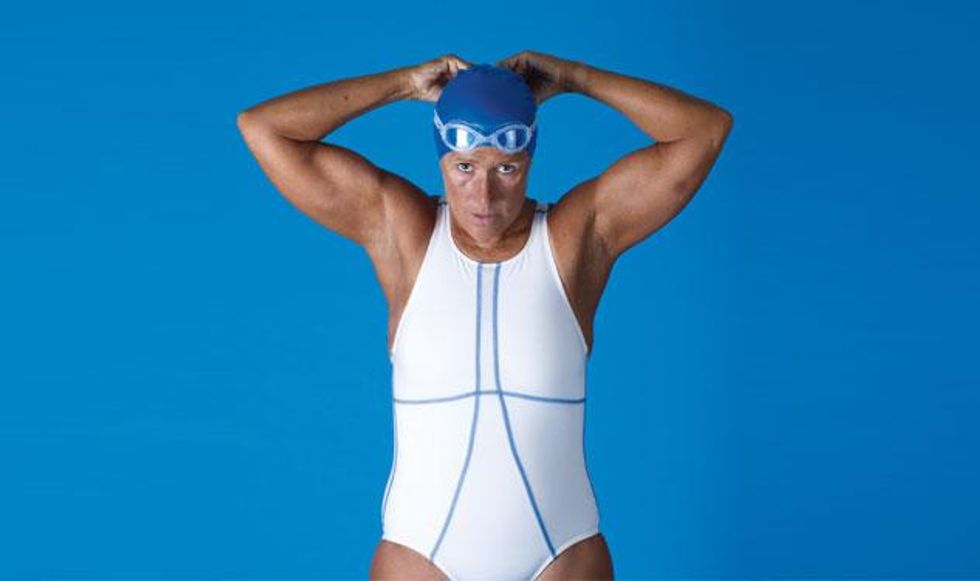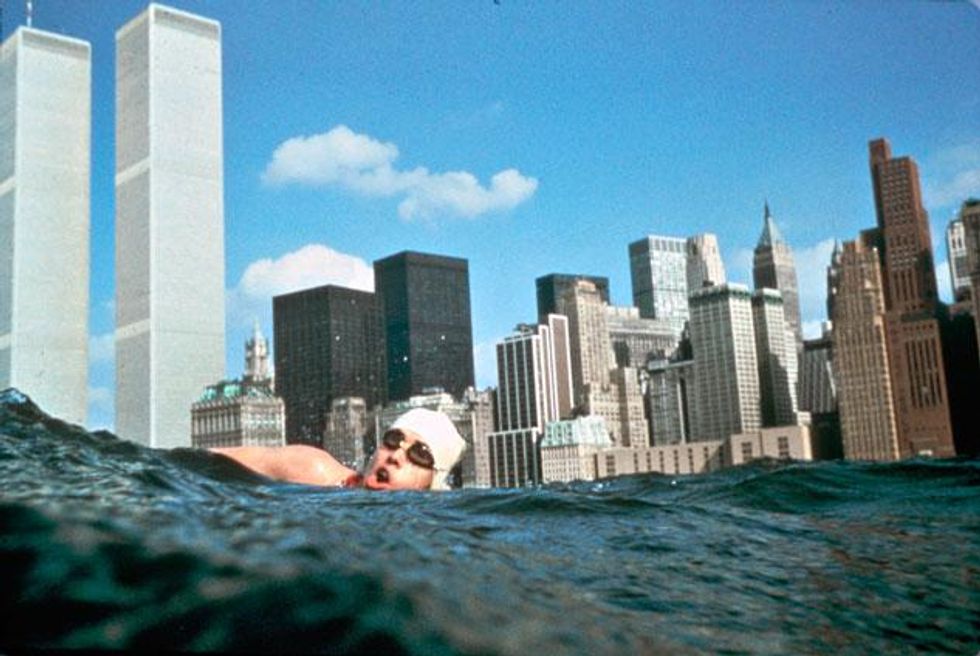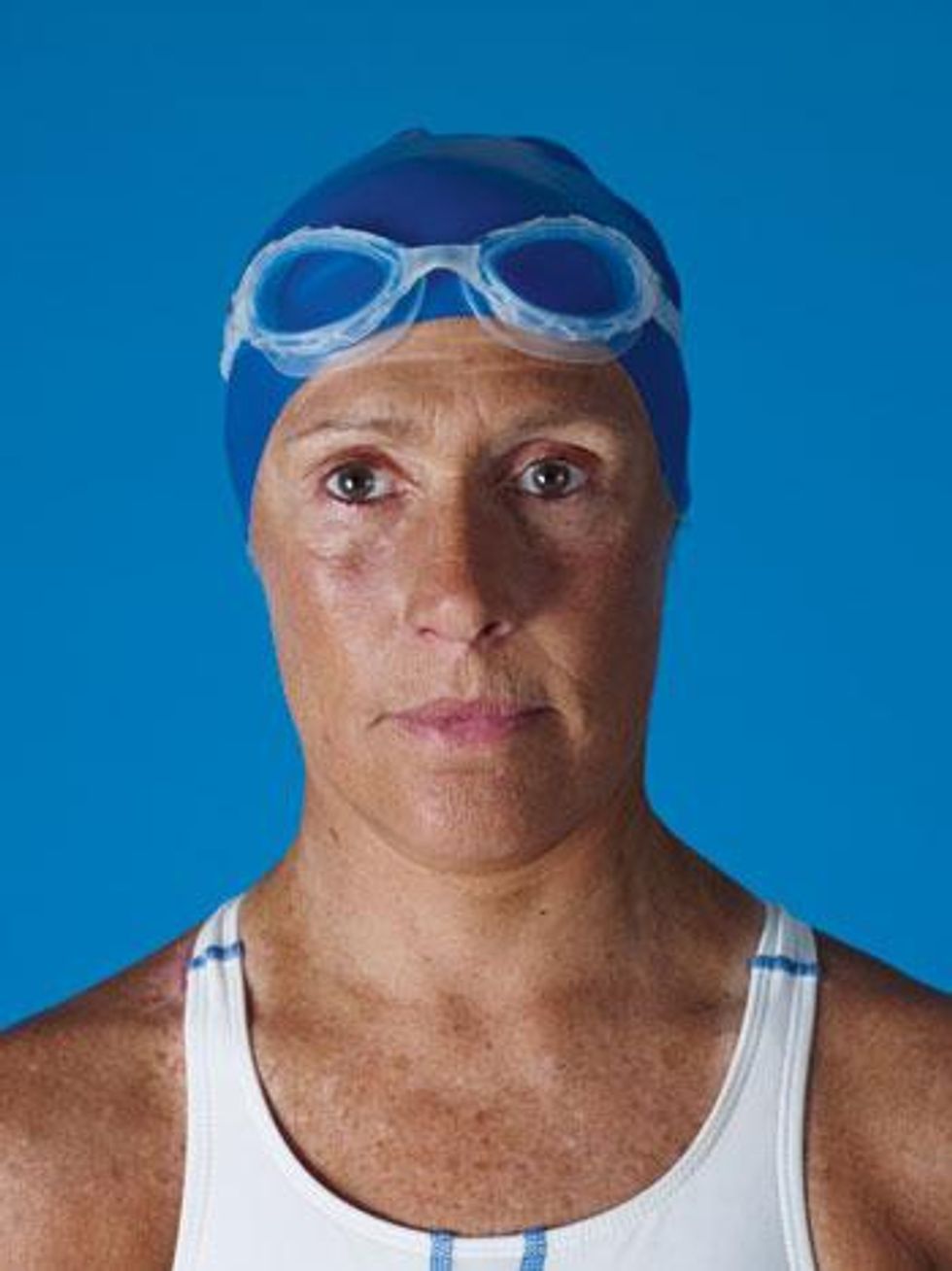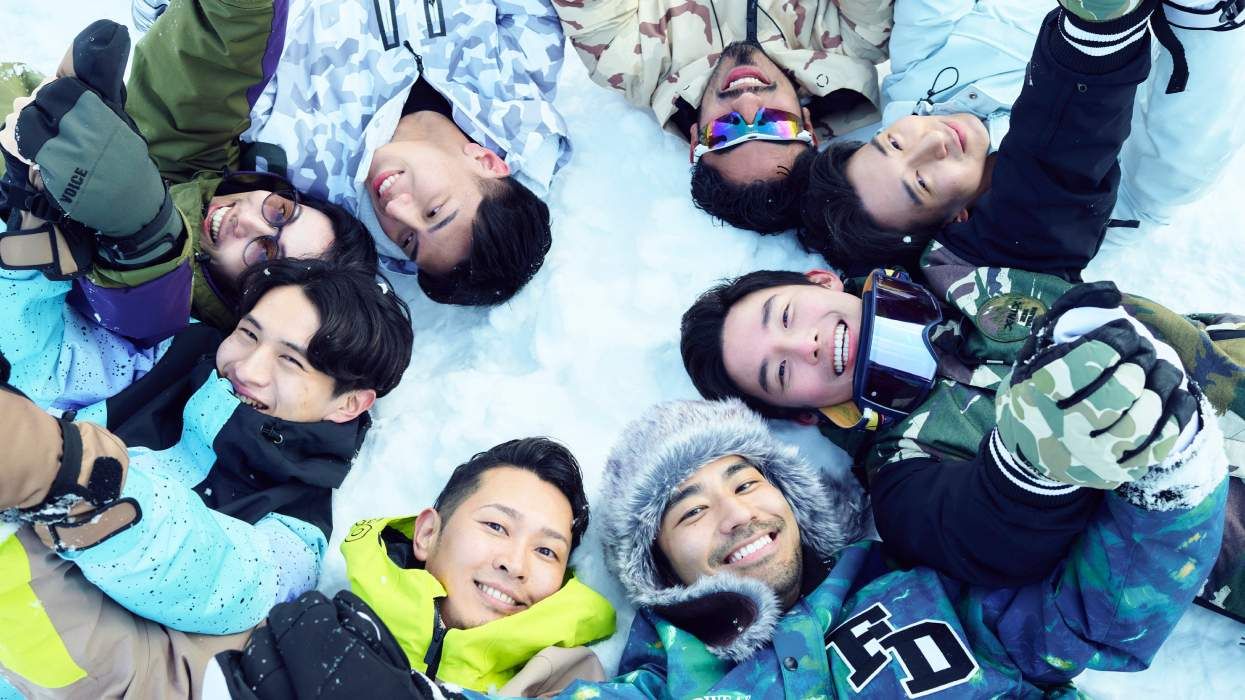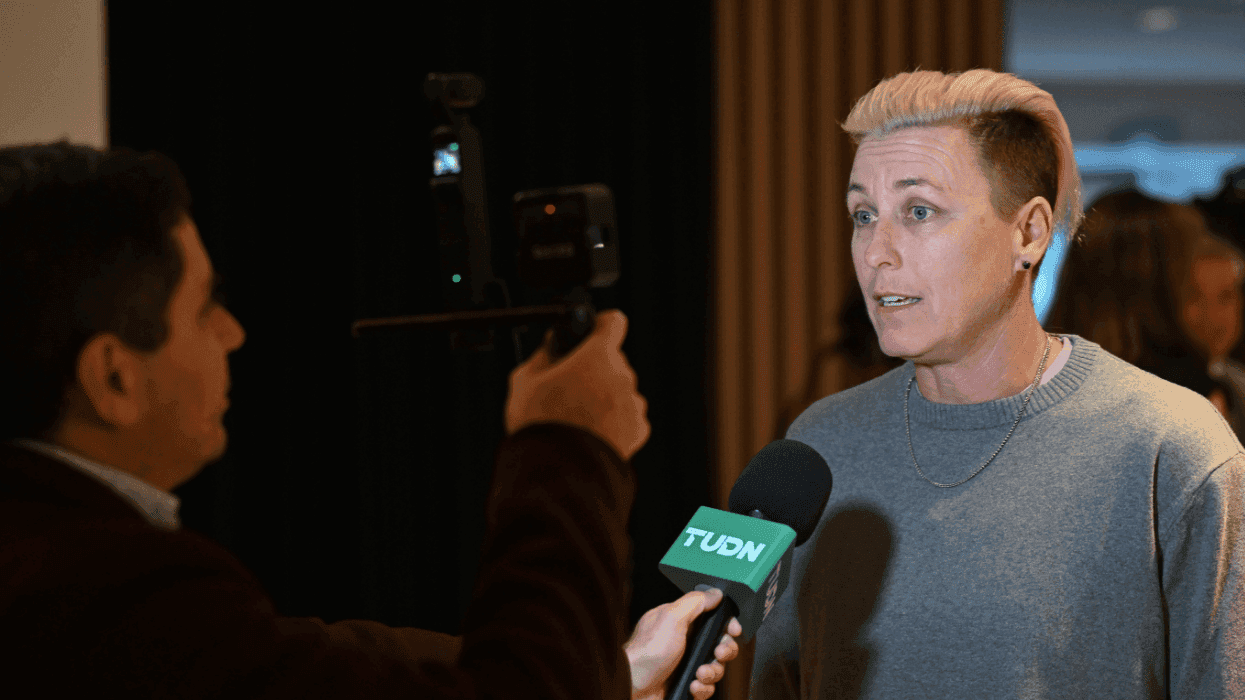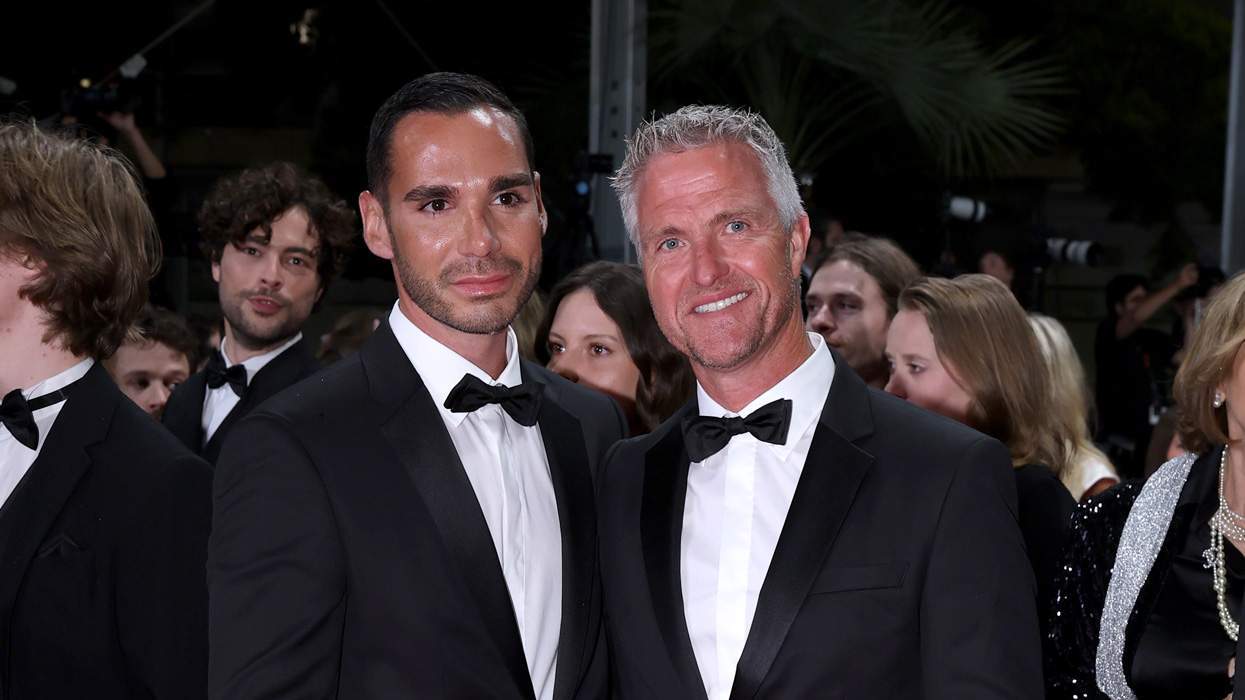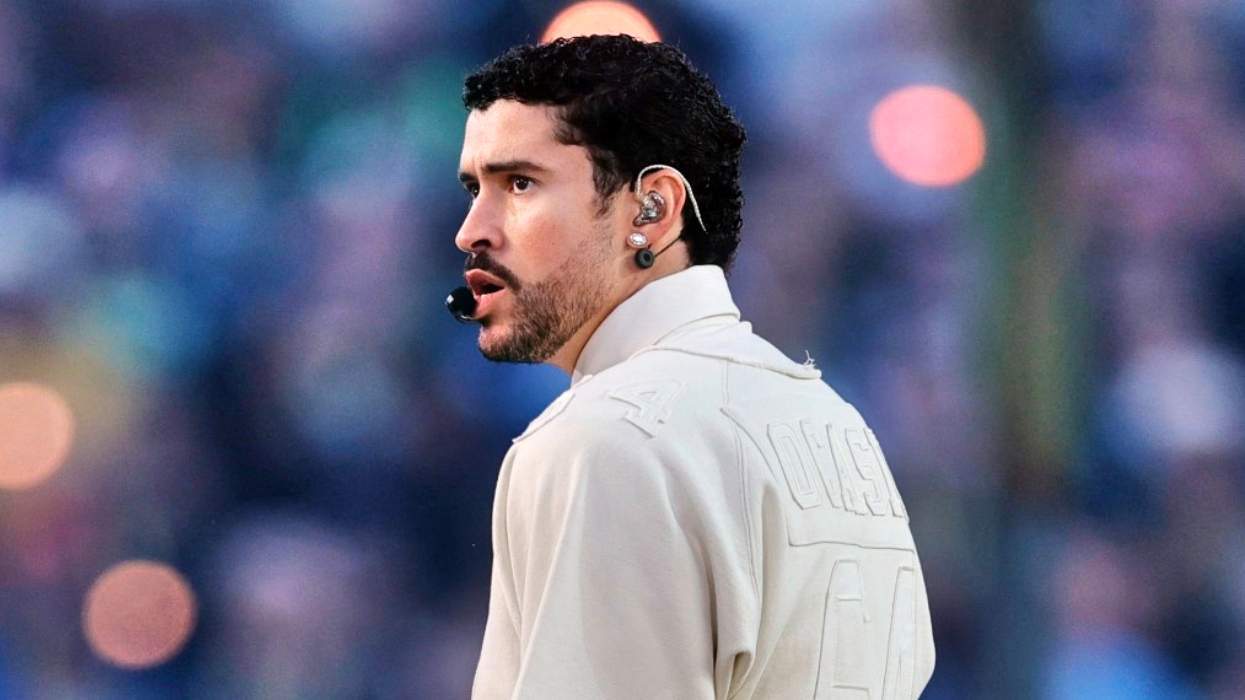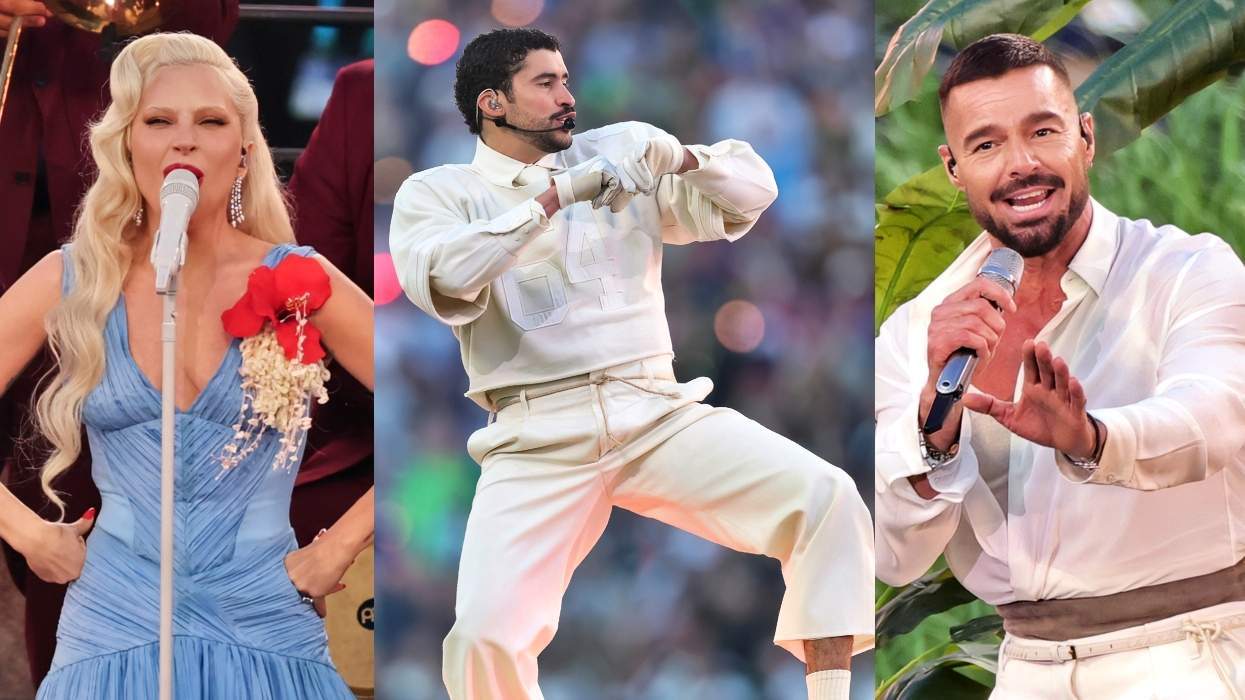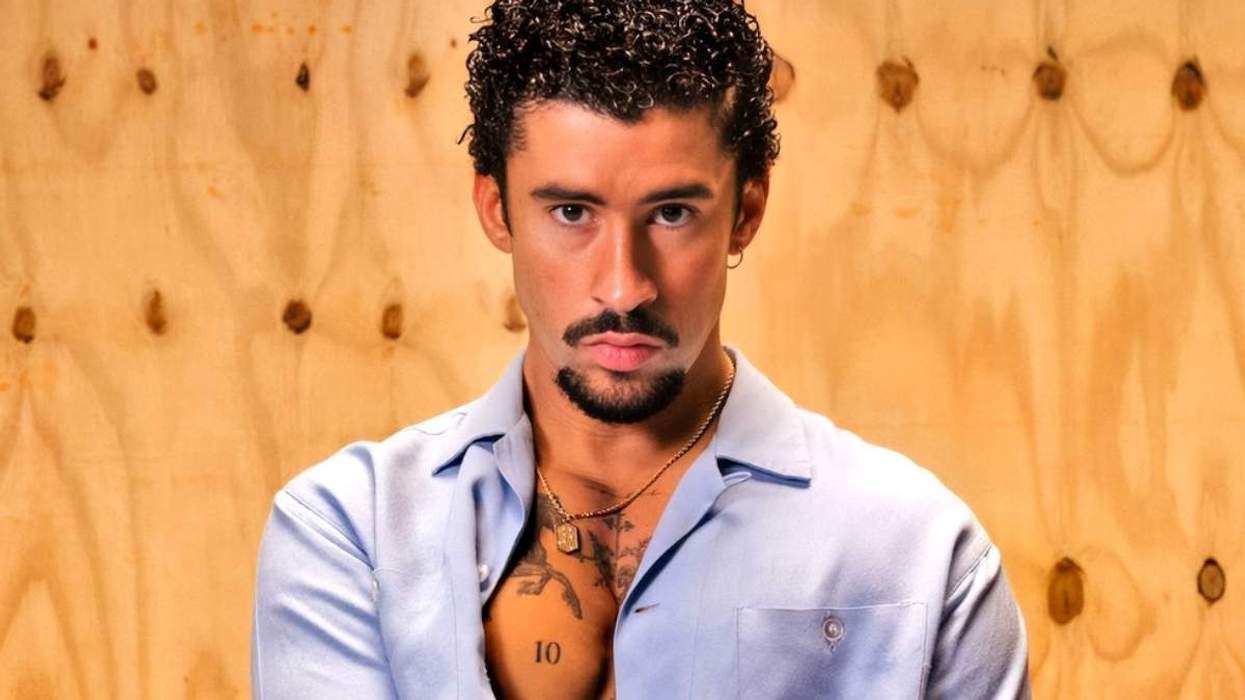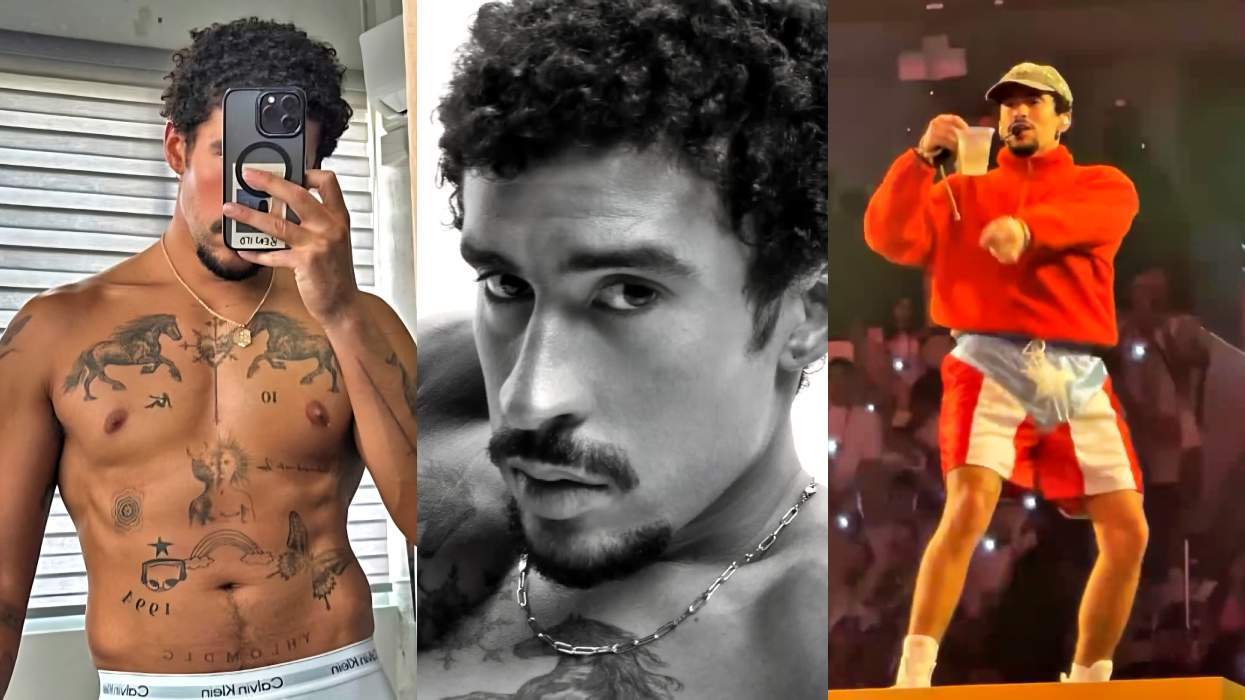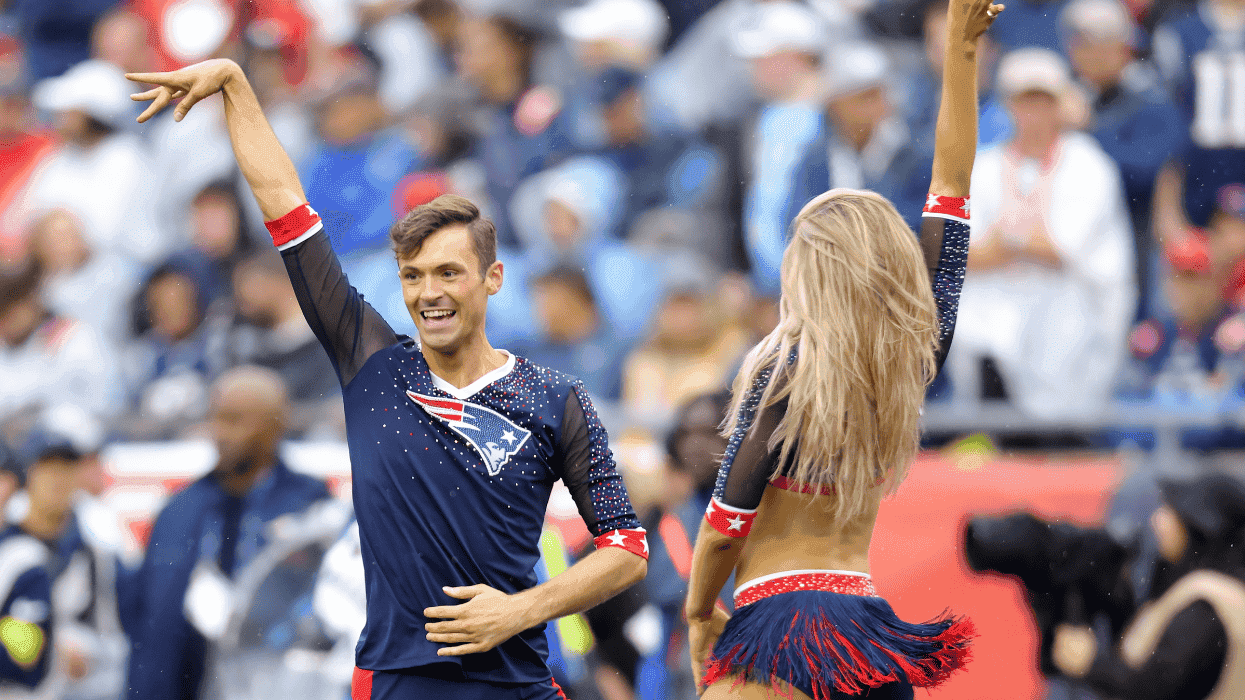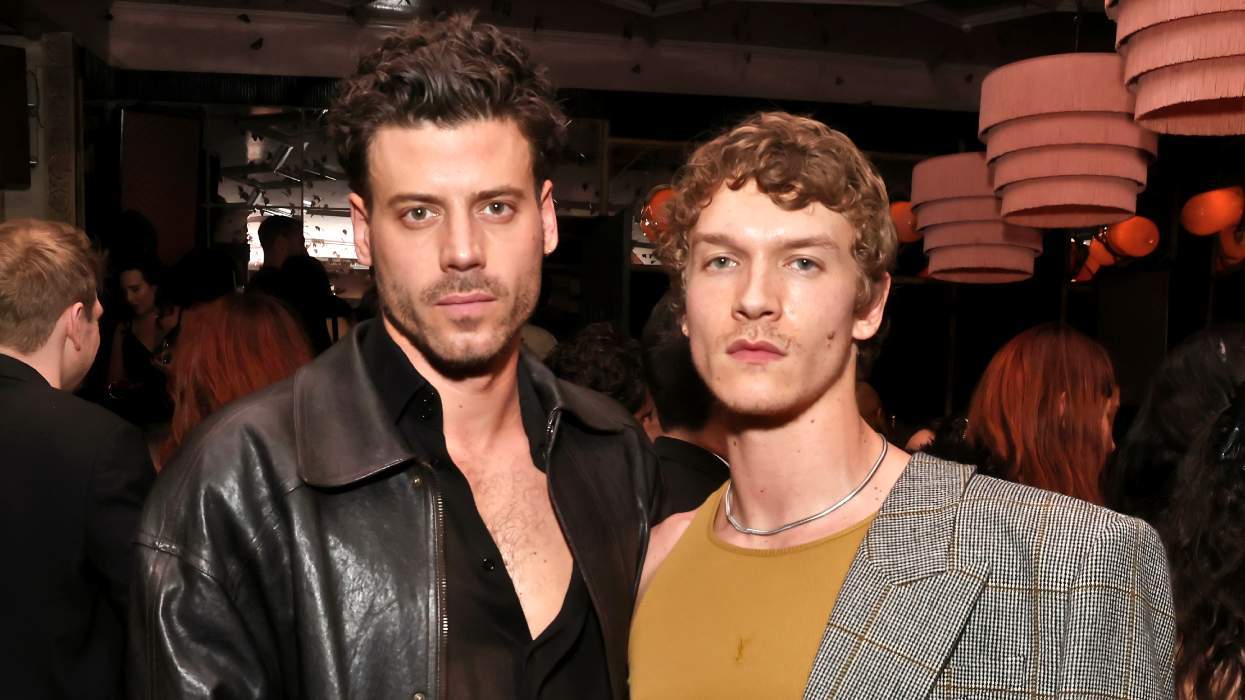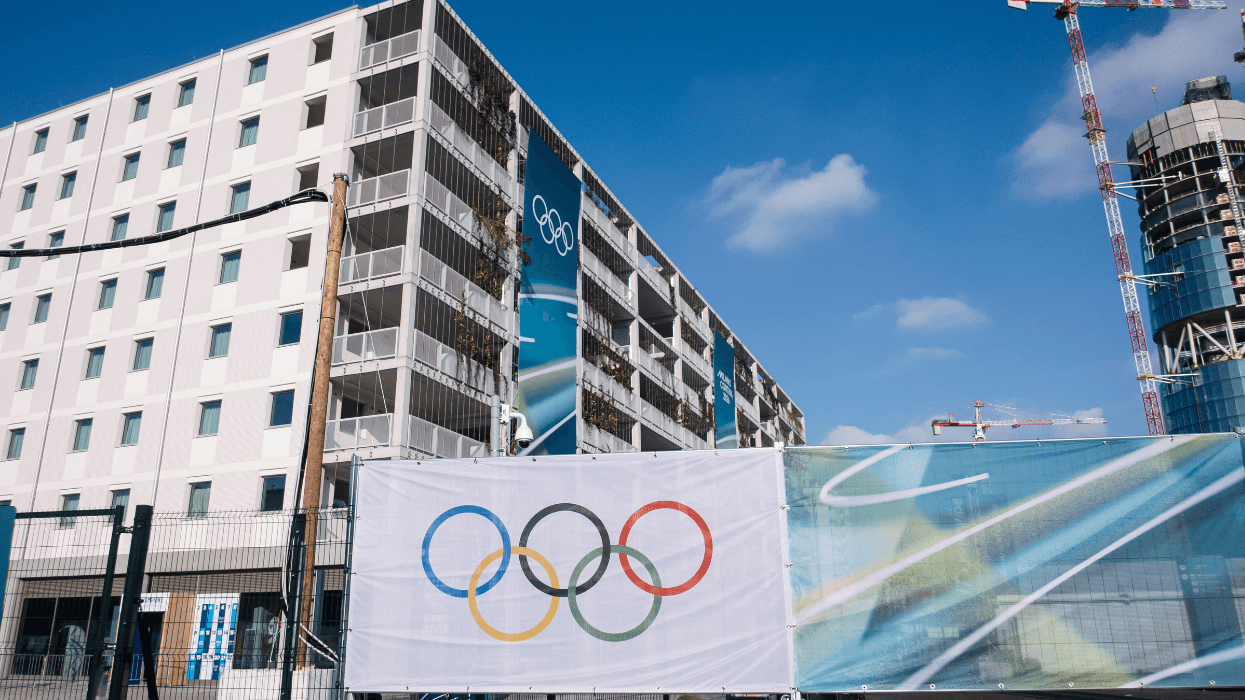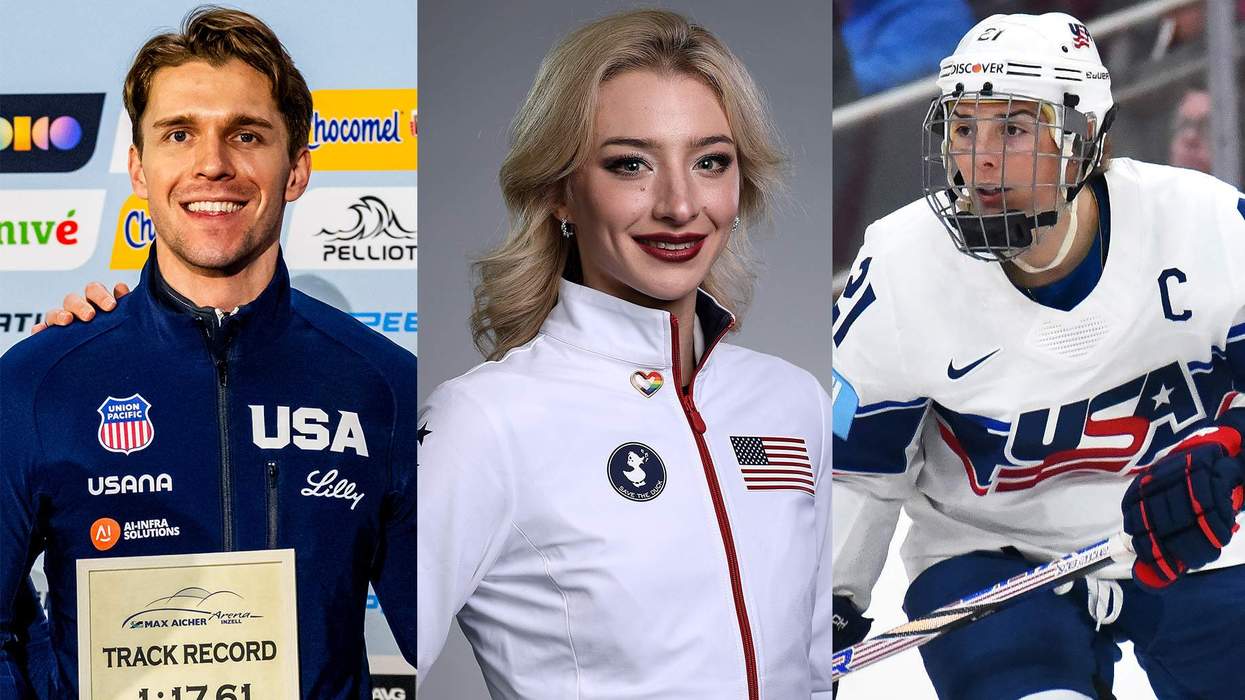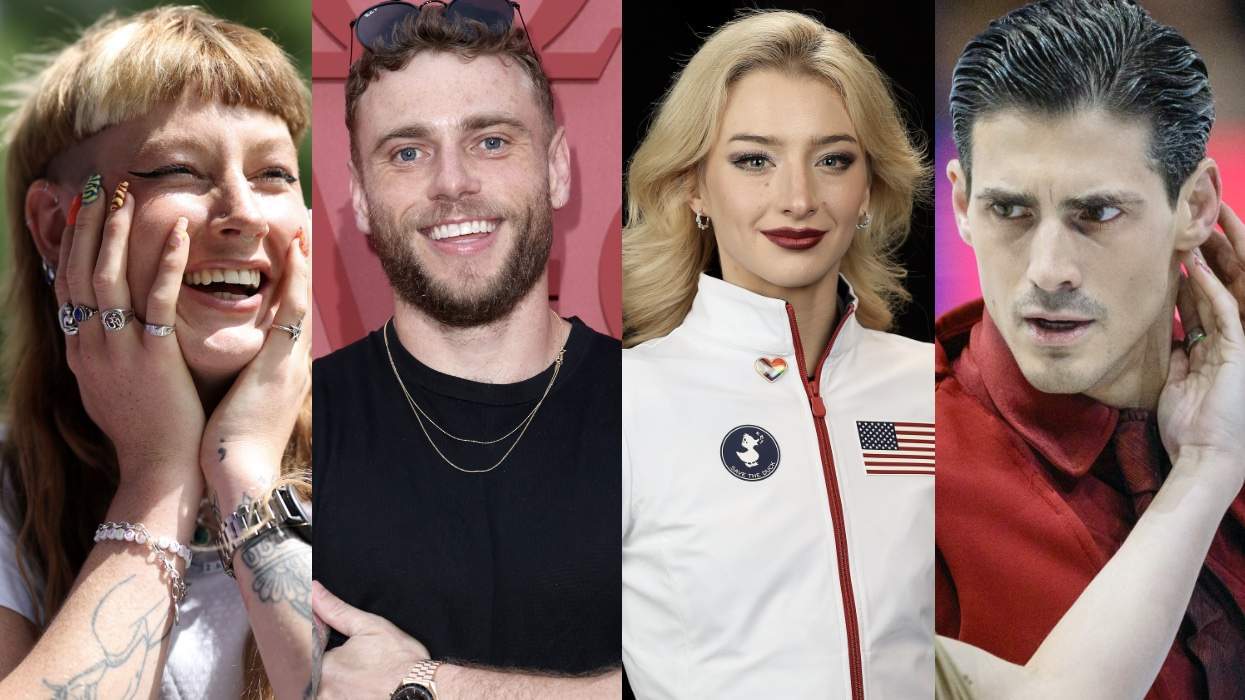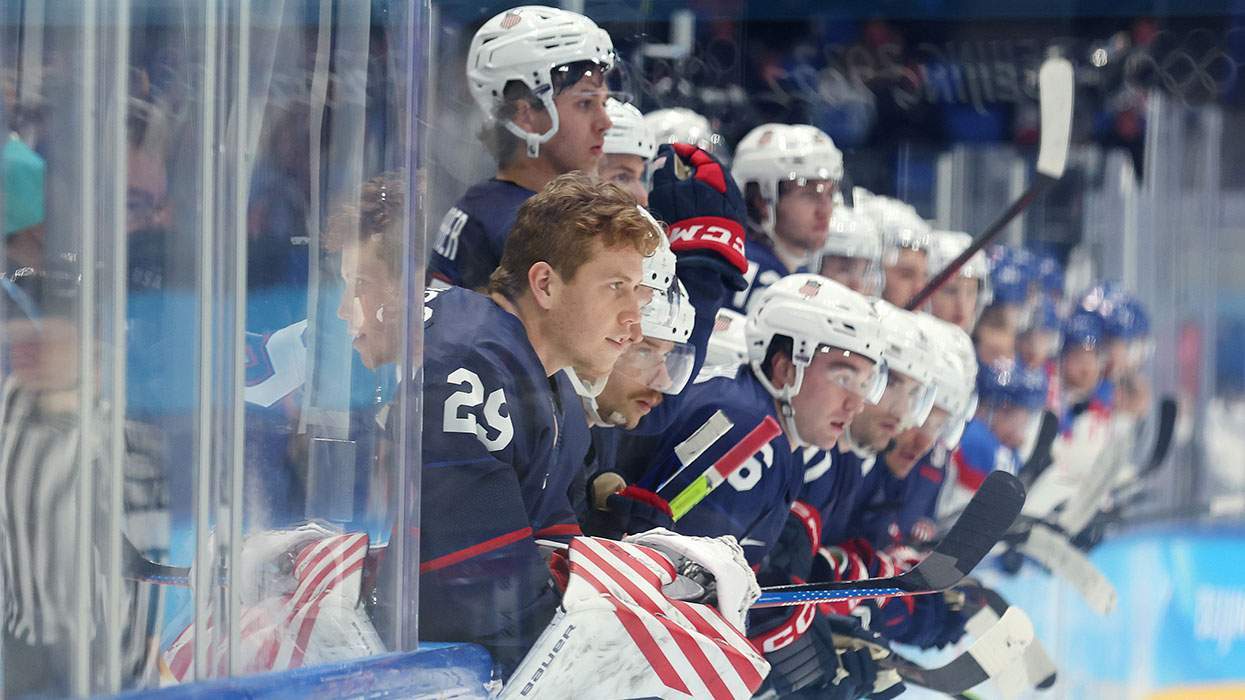Photography by Catherine Opie
By the time you read this, Diana Nyad may have achieved her elusive lifelong dream. Or not. Or she may be on the verge of doing so, or on the verge of failing. We cannot know, because the sea is a mystery, and understanding it is the key to conquering it.
What Nyad knows is that three times she has tried to swim the 103 miles separating Cuba from Florida, and every time she has been defeated -- by weather patterns, by box jellyfish, by exhaustion. This summer represents attempt number four. She is 63. She is as ready as she's ever been.
Once the great journey begins, she will be surrounded by a small flotilla of support teams. But she will still be a tiny, solitary speck in the ocean,
arms pushing into each wave, alone in the water. Alone in her head. And that's where things really get tough.
In extreme sports -- scaling Mt. Everest extreme, not BMX bike stunts on Spike TV -- youth does not always command the advantage it does in other athletics. Any physical feat relies as much on the triumph of mind over body as it does on sheer strength and agility, but the mental rigor required to spend hours or days engaged in one repetitive drive toward a finish line may actually benefit from maturity, if you can maintain the competitive stubbornness and achieve a certain measured peace with your past.
Nyad's childhood was Continental -- a French mom and a Greek father, who later turned out to be her stepfather -- and she spent her early years traveling, becoming a polyglot, and learning very quickly to forge her own way.
"My father was a desperately immoral guy -- a liar, a professional thief, a polished lowlife," she says. "He was also gorgeous. Women died when he walked into a restaurant -- and some men. And because my mother was so meek and needed him so badly and took his side in everything, I took charge of myself early on."
In 1959, when Nyad was 10, her mother, by then divorced, moved them to Fort Lauderdale, Fla., where a little island that would bring America to its knees was just across the horizon.
"It was just when the Cubans were coming to Miami," Nyad says. "I'd say, 'You mean it's right over there? And we can't go there, and they can't come here? I wonder if anyone could ever swim over there.' The earth is four-fifths water. You can swim 100 miles anywhere."
But whereas many long-distance swimmers in the early 20th century focused on the English Channel, Nyad was already a warm-water creature. "To me, Cuba--I just can't think of a stretch of water that has so much mystique to it."
Nyad won three state championships in high school for her backstroke -- her mother, impeccably put together, "wished I would [have] played tennis and [had] a little pleated skirt" -- and in her twenties emerged as a star in the still-unusual field of distance swimming in open waters.
Even then, she wasn't the fastest, but she was unerringly consistent. Hidden underneath the steady stroke was a scar being ripped open and stitched back together with each mile. She wasn't a clicking metronome, she was a nuclear submarine.
"All that ocean-swimming I did back in the '70s was just filled with anger," Nyad says. "And sometimes anger is very powerful. John McEnroe played his tennis with anger. I think it was a little part of my success back then."
Her anger was no tantrum played out on a tennis court. "I was swimming every stroke with anger at that man and that sexual abuse," she says. "That man" was her high-school coach back in Florida, an Olympian and Hall of Fame vet, and "that sexual abuse" was the four years of rape she endured under his tutelage. "I was so naive. I hated him and loved him and felt humiliated and denigrated and so afraid, so terrified to be the last one left or the first one there in case I might be taken or attacked. At the same time, I felt like the chosen one."
She shared that closely guarded secret with her best friend a few years later, only to discover they had the same story -- and so did other girls. When Nyad told her mother, "she said, 'Oh honey, don't use words like rape. He's a man of prominence.' " Over the years, as the accusations became public, the coach denied everything. It took decades for Nyad and her mother, who dealt with the onset of Alzheimer's, to forge a close relationship.
So she kept swimming. She swam so hard and fast and angry that she set new world records. She swam around Manhattan in 1975 in just under eight hours, breaking a 50-year-old record. She tried for the first time to swim from Cuba to Florida in 1978, but only made it 42 hours before the combination of high waves and the metal shark cage she was inside became too brutal to endure. The next year, she swam 102 miles, from the Bahamas to Florida -- a slightly easier trajectory -- and walked onto the beach at dawn of her 30th birthday.
And then she decided she would never swim again.
Long before the Kardashians processed each new microemotion on TV, athletes were ambushed by flashing cameras while still in the throes of endorphins, peppered by questions about what their win/loss/tie meant to them, to their coaches, to their fans, to their nation. They were the first reality stars, and some were so good at it they retired to on-camera careers as commentators or actors or hosts.
When Nyad quit swimming, she enjoyed some celebrity -- she appeared on Johnny Carson's Tonight Show, was name-checked by Jacqueline Kennedy Onassis on the front page of The New York Post, and was eventually courted by ABC Sports. "I'd done nothing like that," Nyad says. "I was at NYU, studying comparative literature for a master's degree, thinking I'd teach Madame Bovary." She covered world championships and the Olympics for Fox Sports, was a commentator for CBS, and hosted international travel documentaries and exotic animal shows, but is probably best known for a regular column on NPR.
Out of the water, Nyad is a big personality in a tiny frame (those ocean-crossing shoulders her mother worried about are strong, but she's surprisingly proportionally petite). She is confident, bordering on cocky, demanding in that charismatic way that stars have where you find yourself wanting to be helpful, even if it means agreeing to meet for the first time at a Volvo dealership at 8:30 on a Saturday morning.
In the three hours we spend together on a Los Angeles day that swings from gloomy overcast skies to scalding sunshine, I quickly learn that there is one thing that Nyad can do as well as she can swim: talk. Her stories are tight little races; you don't know where they're going until they arrive, usually in heart-wrenching detail, at a moment of great triumph or tragedy. Her sentences are less steady than her famously even strokes, often abandoned in her rush to get to the climax. But she has a marathoner's stamina; she almost never stops talking. It's not the selfish babble of a straight-up egotist--she also asks razor-sharp questions of everyone she encounters.
The only time she is content to be silent is when her best friend, business partner, and coach-like handler, Bonnie Stoll, is in the car with us, propped up in the backseat and cranky about being dependent while she recovers from knee surgery. Then it's as if Stoll's mere presence is enough to take up all the quiet space. Together, they focus on criticizing my driving -- "I could have walked down that hill as fast as you drove it," Stoll says -- and directing me to the personal-training appointment Stoll has for the fitness company they own together. It's a tiny glimpse of what I imagine Nyad experiences in the water, and I can't help but speed up.
Nyad now raises a good chunk of the cost of her marathon swims as a motivational speaker, addressing corporate retreats, colleges, and associations (a representative example can be found in her TEDMED talk available on YouTube). She can rattle off tips for aspiring toastmasters ("Don't talk about things you don't know") and has a tendency to veer off into her version of a stump speech: "We all have hopes and dreams. You get a certain finite time, and all you can do is be in awe of it." She is saved from a Tom Cruise-in-Magnolia-ish performance only by her transparent sincerity.
The story she tells over and over is about turning 60.
She had managed to stay relevant as a journalist. She was gregarious, outgoing, and charming. She didn't expend any energy trying to hide that she was a lesbian, once she figured it out -- at 21, she had taken a bus from New York City to Ann Arbor, Mich., for a friend's surprise birthday party. "They didn't tell me they were all gay," she says. "They thought, She won't care, she'll just get here and deal." She had sex with three women that night.
"I stayed for two weeks and went out every night and slept with everybody in the town." Before that, she says, "I was just so messed up. I didn't have any sexuality -- I just knew I didn't want to be with men. But I thought it was all just because of the trauma -- you never know, but I think I was gay from day one."
Twenty years after her most serious relationship ended, she has tried at big love a few more times: Friendships became more only to fizzle out again, and a family of exes and comrades who take care of each other make it a little too easy to stay single. "I like to think that I'm fearless and go through life boldly," she says. "This is a cherished little window of time you have, so you've got to grab it and live it large. Except, in this area of life, I've been scared and putting it off and making all kinds of excuses. I know I'll be in love again. But I've been really reluctant."
But then her mother died at 82, after they had found a fragile, tender friendship. Nyad was still in unbelievable shape, but found no solace in physical exertion. At her most serene, she's a worrier, a second-guesser, and as the big birthday neared, she became overwhelmed with regret.
"I would do a 100-mile bike ride in a day, out to Santa Barbara or Palm Springs. And the whole time, it would be like, Why? Why didn't I throw him off me? I was bigger and stronger when I was 14 than I am now. Why didn't I walk his ass into the principal's office? Why? Why didn't I say this yesterday to the guy at the shop? Just second-guessing everything. It was ruthless. It's good to examine a life. You need to move forward and you need to learn. I've done plenty of that--this was just a constantly revolving regret and self-bashing: I really don't deserve this. I'm really not that good. Somebody's going to find out I'm a fraud. Most people say that; almost all people are thinking it. And when I turned 60, I thought, Am I going to do this another 22, 25, 30 years, and that's going to be it? I'm sick of it. I'm going to stop it."
So she came up with the biggest, most outrageous-sounding idea, a desperate lifeline that would require every ounce of her attention. She set her sights as high as she could imagine: She would go after the great white whale, the Cuba-to-Florida swim that had eluded her three decades before. She calls it, a bit cultishly, her "Xtreme Dream," but it had an extreme impact on her outlook.
"We're a new generation of 60," she says. "I want to feel alive and alert and awake and empowered. I'm in this rapture now, but it's taken time to get here. I have friends who say, 'Diana, you were always like this.' So I guess I see it differently than how I've been behaving it."
She went back to fundraising, finding sponsors and raising money to cover the cost of some 35 crew members, support staff who would help plan the perfect moment to start, who would help chart a course and then follow her lead, who would kayak alongside her with shark-deterrent electrical cords trailing down into the depths: medical advisers, nutritionists, oceanographers, meteorologists, and more.
All of them -- not to mention a significant media presence and millions of followers on her blog and on Twitter, hitting refresh over and over for an update -- were there last summer. They all watched as her first venture was aborted (allergic reaction to pain medication for an injured shoulder) and her second attempt ended abruptly (two painful, potentially lethal attacks by box jellyfish, among the most dangerous predators in the ocean), both far from the final destination in Florida.
"It's not easy for me to let go of this dream, and I'm in distress about it," she told CNN, which shadowed her for much of 2011 for a documentary.
This time, she only wallowed in regret for a few days. She decided to try again. "I'm always focused on it," she says. "Go to sleep with it. Wake up with it. It's a really tough stretch. It's not just 100 miles -- it's a tough 100 miles. If we can just make it through the jellyfish and I'm not attacked by a shark or something... What I worry about is getting across. I don't worry about how I'm going to feel at the end."
Through this long winter and spring, she's built her way back up, swimming six hours a day in a lap lane that the Rose Bowl Aquatic Center in Pasadena keeps reserved for her, then ocean-training for eight or 10 hours at a go. When we speak in May, she's essentially commuting between L.A. and Mexico, where she does 12-, 14-, and 16-hour swims, alternating with days off, then heads home to recover and put back on the weight she's lost. (In the three days or so it takes to swim from Cuba to Florida, she'll lose somewhere between 15 and 30 pounds.)
Even at peak fitness, she is so weak at the end of these test runs that she must be lifted out of the water and carried like a newlywed across the deck to be laid down on her back, swaddled in towels, lips swollen and body fighting to detox itself from the salt absorbed through her skin.
She'll do one 24-hour swim before hunkering down to wait out the weather. And then, if everything goes right, she'll swim about 200,000 strokes without Mother Nature's menagerie getting in her way. If it goes really right, she'll enjoy a calm, flat ocean, because as little as a one-foot difference in the height of swells can quickly and exponentially destroy her timing.
Most of Nyad's heroes are near-strangers, survivors whose stories she's collected throughout the years: an octogenarian Holocaust survivor whose young childhood in Dachau was spent as a concubine to SS guards; a man in his thirties who lives down the street from Nyad and is raising three young kids after cancer killed his wife; a sobbing woman Nyad comforted in a Starbucks whose baby was run over after being left in a bassinet in the driveway. "She asked, 'How am I supposed to go on now?' And I said, 'I'll tell you the truth: I don't know.' How do people journey through and find hope again, find love again?"
Sometimes, but not always, Nyad talks about her own sexual abuse in her speeches. When she does, she knows she will inevitably be taken aside afterward by men and women who share their own shaky stories. Nyad says, "Those are the people I admire. Those are the journeys. We all feel pain. We all have hardship."
This summer, millions will gather on the banks of the Serpentine in Hyde Park to watch the 10k open-water swim, a competition that didn't exist until Beijing's games in 2008. And while she's tough on the Gay Games -- "I don't respect it," she says, "the word 'Games' is special" -- in 1978, Nyad called her Cuba swim "my own private Olympics."
"There's something of that still left in me that has a competitive ego," she says. "I could care less if this swim becomes a new world record or if my goggles are in the Smithsonian Institution. I'm sure if all those things happen, I'll be honored. And I surely don't want the disappointment of not making it. I don't want this to be a failure. It's been too long and too hard, and I can't do it again." She's said that before, of course. After this year, though, she says, "I'm not going to swim anywhere again. But I want to live like this."
That means she'll probably do less sportscasting and more speaking out about sexual abuse, especially in a world where a Penn State-sized scandal can disappear from the headlines in a matter of months. "It's such an epidemic," she says. "It's happening everywhere." She's working with Joshua Ravetch (who directed Carrie Fisher's Wishful Drinking) on a one-woman theatrical staging of her motivational talks. "You call it a corporate speech, but it's really a performance." And she's started talking to major corporations about an "Xtreme Dream" annual event, in which employees would get a day off every spring to "March Forth" toward some personal goal.
"Nobody unkindly wrote me last year to say, 'Oh, what a disappointment.' They said, 'It's all about the journey, and you don't need to get to the other shore.' That's the irony. It's always the debate of the journey and the destination. You wouldn't be going through that heroism if you weren't shooting for the other shore. It's all about the destination -- and the journey to get there, but not without the destination."
UPDATE (9/2/2013): >>>>>>>>>>>
On Diana Nyad's fifth attempt at swimming from Cuba to Florida--25 years after she first tried--Nyad, now 64, successfully reached Key West after more than 50 hours in the water. Her 110-mile swim set numerous records, including the first Cuba-Florida crossing for a swimmer without use of a shark cage.
In contrast to her previous journeys, Nyad enjoyed relatively moderate weather, good currents and a far smaller number of the dangerous box jellyfish. "You're never too old to chase your dreams," she said to supporters and camera crews on the beach, before falling into the arms of her best friend and chief trainer, Bonnie Stoll.



